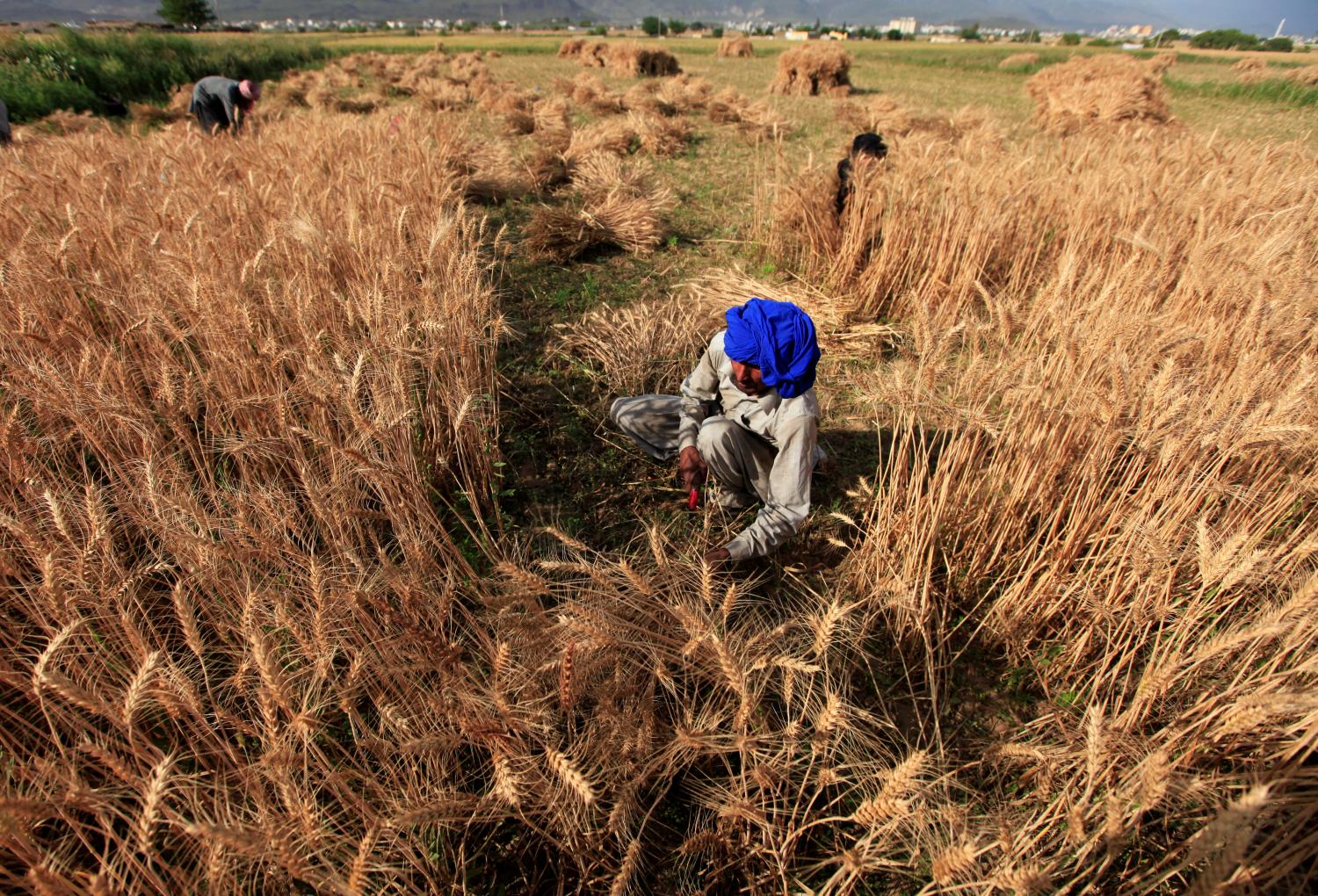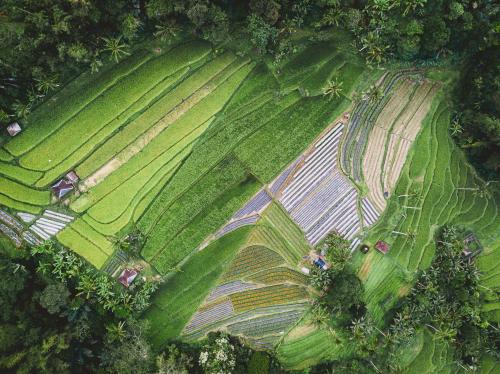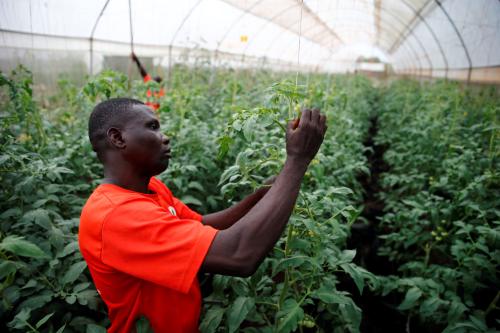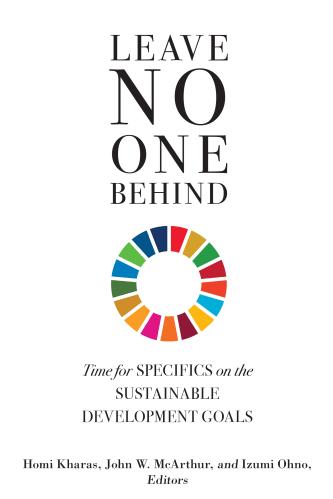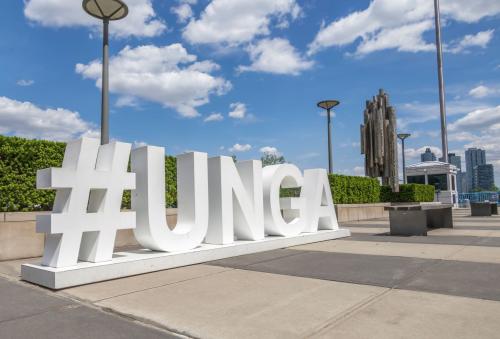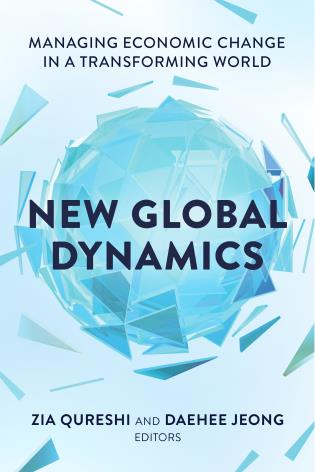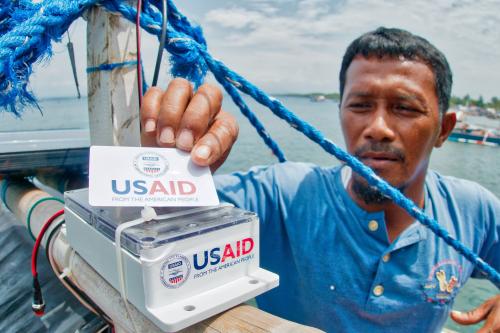Executive Summary
Most countries are not on track to achieve Sustainable Development Goal 2 (SDG2) to end hunger and improve sustainable agriculture by 2030. Even before COVID-19, progress had halted and on many indicators was actually reversing: the prevalence of severe food insecurity has been increasing for the past five years (FAO 2020). A slowing economy, widespread conflict, more extreme and frequent weather events due to climate change, and sharp inequality have exacerbated stalled progress. The cratering global economy and ongoing health crisis of COVID-19 will push SDG2 even further from reach.
This diagnosis is depressingly routine and increasingly well known: both official reports from multilateral organizations and academic and policy analyses have been warning for years that the world is off track on SDG2 (Cohen, 2019; FAO, 2019; Gertz et al., 2017; Samman et al., 2018). Yet despite this knowledge, investment and action to reverse these trends have not materialized. According to the authors of the 2020 Global Report on Food Crises, “We have the tools and the know-how. What we need is political will and sustained commitment by leaders and nations” (WFP, 2020).
One idea for kickstarting global action on SDG2, initially proposed by a group of experts in 2019, is convening a new high level commission on food and nutrition security (FNS) and agriculture. Such commissions, which lack formal policymaking authority but act through advocacy and communications, have been created in recent decades to address multiple global policy challenges in development, health, and international security. Conceivably a new commission on FNS and agriculture could help drive political action and accountability, improve coordination, and attract global attention around SDG2. However, there is already a crowded institutional landscape in FNS and agriculture, and there is a risk a new commission would duplicate existing efforts and divert attention and resources from other, more promising endeavors.
This paper assesses the potential and limits of a new high level commission in FNS and agriculture. Our goal is not to advocate for a new commission. Instead, we scope what can be learned from previous similar efforts, and critically analyze whether the functions of a high level commission map on to current challenges in FNS and agriculture. Why have some high level commissions had important impact in shaping global politics while others have fallen flat? What, if anything, could a new commission on FNS and agriculture hope to achieve? And how should such a commission be organized and implemented to maximize its influence?
Drawing on an original database of 143 historical and current high level commissions, five case studies of specific commissions, and interviews with 35 experts in FNS and agriculture and from previous commissions, we find reasons for both skepticism and support for a new commission.
Key Takeaways
Many high level commissions have only modest impact.
Tracking the causal impact of high level commissions is challenging, as their influence can be diffuse and only appear years after the fact. Yet whether judged by the uptake of their recommendations or the frequency of citations and mentions in academic literature, policy reports, and the media, the typical commission does not leave much of an impact. Many commissions, even those made up of very famous members, come and go without much of a trace. This perhaps reflects the fact that, as one interviewee noted, “forming a commission is what you do when you want to look like you’re doing something but don’t actually want to do anything.”
Yet a few commissions have had clear, substantial impact.
While many commissions have minimal lasting effects, a few have had transformative influence on international cooperation. Some, such as the Brundtland Commission and the International Commission on Intervention and State Sovereignty, have had wide-ranging influence in shaping discourses through defining and popularizing new concepts (in these cases, “sustainable development” and the “responsibility to protect”, respectively). Others have worked more behind the scenes, leveraging their networks and close access to influential policymakers to press the case for their recommendations.
Many factors determining whether a commission is influential are outside of its control.
A commission’s efforts can be easily overtaken by larger structural political forces that hinder international cooperation. Even well-designed and executed commissions may be thwarted by shifts in the global political environment. Conversely, other commissions will find themselves at the right time and the right place, with windows of opportunity to have a lasting impact—but commissions cannot necessarily create these windows through their own efforts.
Demand-driven commissions tend to be more successful than supply-driven commissions.
Commissions that arise in response to a clear external demand and are reactive to the global political environment have a built-in audience that is likely to be receptive to the commission’s recommendations and at least seriously consider taking up its proposals. Supply-driven commissions, those that emerge out of commission chairs or sponsors taking independent initiative to advance an agenda, face a tougher uphill battle in shaping policy outcomes.
Commissions are most successful when they have a clear problem statement and theory of change.
Many high level commissions were formed without clarity on the precise problem they wanted to resolve, what actors they needed to influence, a theory for how they would achieve their objectives, or metrics for gauging success. Without these factors in place, commissions can serve as useful discussion forums, but rarely have much traction with broader audiences. A clear mandate facilitates cohesive discussion and action. When a commission does not have a consensus problem statement, much of the commission’s time and effort will likely be taken up seeking to define one.
Following best practices in the design, execution, and follow-through for commissions improve their odds of success.
Our case studies, interviews, and reviews of previous literature reveal several key lessons for launching a new commission, including:
- the importance of a highly engaged and committed chairperson(s)
- how to strategically choose commission members
- the need for adequate funding and staffing, including a well-resourced secretariat
- how to foster networks and relationships and focus attention through in-person meetings
- how to manage internal dissents and political controversies within the commission
- why commissions need extensive (and often expensive) communications strategies, beyond simply publishing a final report
- how to lay groundwork for longer-term action and follow-up, thereby extending the reach of a commission
A new commission for SDG2?
Putting together everything we know about the strengths and weaknesses of high level commissions and the current gaps and needs in FNS and agriculture, would a new commission help? There are reasons to be skeptical. For instance, there are already multiple efforts to coordinate global donors in the sector, and it is not clear a high level commission would add anything new. Similarly, a commission seeking generally to raise awareness or catalyze political action on FNS and agriculture would lack focus and a clear theory of change for achieving practical results. And many of the most important constraints to progress on SDG2 need to be addressed at the country level, rather than the global level.
Despite these concerns, however, our research does suggest a commission with a clear mandate and focus on a tractable agenda could be fruitful. We identify three options for further consideration:
Option A: Commission designed to carry forward the work of the UN Food Systems Summit.
In 2021, the United Nations will convene a global Food Systems Summit to raise awareness and encourage political commitments for transforming food systems. The Summit is the clear focal point for political action and advocacy in the FNS and agriculture sector for the next year. A new high level commission closely aligned with the Summit process—with an explicit mandate on carrying forward the messages and objectives of the Summit into the future—could valuably complement the efforts of the Summit committee and help ensure its lasting legacy. The commission’s purpose would be to promote high level political commitment and follow-through for the Summit’s action plan, so that issues related to transforming food systems do not fall off the global political agenda once the Summit is over.
Option B: Commission designed to propose reforms to the institutional architecture for FNS and agriculture.
There are long-standing debates over the need to reform the complex web of multilateral institutions, initiatives, and partnerships that govern global FNS and agriculture, but such efforts have struggled to gain traction. Many experts we spoke with agreed that reforming and streamlining the institutional architecture might be valuable in theory, but would be a difficult and arduous process. A high level commission convened to propose reforms to the architecture would be stepping into a politically fraught environment, and would face steep obstacles. But were such a commission able to unblock the process of architectural reform, it could produce real benefits, and there is a potential window of opportunity in the wake of the Food Systems Summit. The commission’s mandate could involve analyzing whether the current multilateral architecture is fit-for-purpose for achieving SDG2, and it could serve as a forum for coalescing around a common reform agenda. To be effective and achieve buy-in, such a commission would need a clear mandate from high-placed actors, most likely the U.N. Secretary General, and be supported by several powerful national governments. This effort is only worth pursuing if these actors actively support it.
Option C: Commission focused on one specific, tractable topic.
Rather than focusing on the entirety of SDG2, a commission could focus on one narrow, more specific topic within the broader FNS ecosystem. This would provide a greater chance of delivering an actionable policy agenda with a clear theory of change. Based on our discussions with experts in the sector, we believe two important topics that could be helpfully addressed by a new high level commission include the intersection of conflict and FNS and the case for investing in agriculture. Crucially, even a more narrowly defined commission should still be ambitious in its vision and recommendations and seek to build connections across the food, nutrition, agriculture, finance, and environmental communities. And even if the commission is not explicitly focused on food systems, any such commission should still seek to coordinate and align with the Food Systems Summit process in some fashion, given its centrality in contemporary policy and advocacy debates in the sector.



